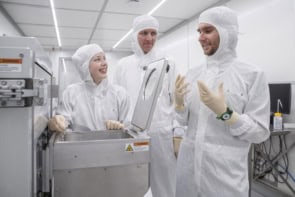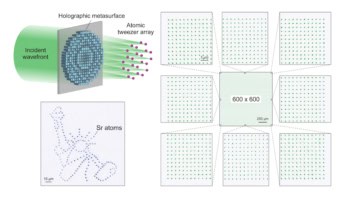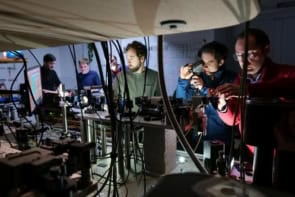Nikolai Basov, the Russian physicist whose pioneering work led to the invention of the laser, has died aged 78. Basov shared the 1964 Nobel Prize for Physics with Alexander Prokhorov and Charles Townes for fundamental research into quantum electronics, which forms the foundation on which modern laser technology stands.
After four years of military service during the Second World War, Basov studied physics at the Moscow Institute of Physical Engineers. In 1948 he moved to the P N Lebedev Physical Institute, also in Moscow, where he worked under the supervision of Prokhorov. While the pair were searching for a technique to amplify microwave signals in spectroscopic experiments, they hit upon the idea of using a gas-filled cavity with reflectors at either end, in which the microwave beam would be intensified. Their discovery that this method produced microwaves with an extremely narrow range of frequencies led to the construction of a ‘maser’ – microwave amplification by stimulated emission of radiation – and, after further refinements, the laser. Working in the US, Townes simultaneously made the same breakthrough.
Basov later became a professor in the department of solid-state physics at the Moscow Institute of Physical Engineers. He was also appointed as vice-director of at the P N Lebedev Physical Institute in 1958, where he became director in 1973. He achieved further recognition in Soviet political life, serving in the Presidium from 1982 until 1989. Basov was head of the laboratory of quantum radiophysics at the Lebedev institute at the time of his death. He died on 1 July.


